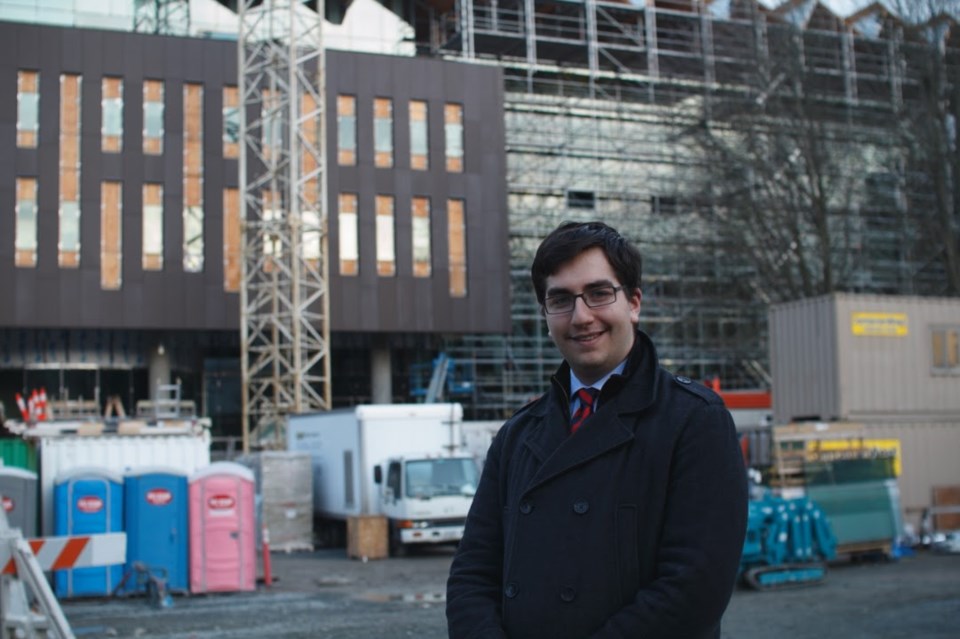Where there are students, there are young people looking for a party. Where there's a residential community, there are people hoping for a little peace and quiet. When you put these two groups next to each other, you get a conflict that's caused consternation throughout the UBC campus over the past decade.
When UBC started a development boom in the middle of campus in the early 2000s, student residences and events found themselves right next door to campus neighbourhoods for the first time.
"It was an experiment," said Jim Taylor, the first chair of the University Neighbourhood Association, a UBC residents' group that formed in 2002.
New residents appreciated UBC's ivory-tower ambience. Money from the properties helped the university's struggling endowment. But student social events on campus, like the annual Arts County Fair last-day-of-classes concert, now had the needs of local residents to contend with.
"[ACF was] an integral part of the UBC experience, but it became this nuisance for the residents," said Michael Kushnir, a UBC alum who helped organize it in the early 2000s. In its peak years, it had over 15,000 attendees.
Police asked Arts County Fair to beef up event security, and costs reached a point the charity event began to lose money. In 2007, organizers pulled the plug on the 15-year end-of-school tradition.
Kushnir and others saw this as a watershed moment. The issues weren't limited to this one concert, they argued. The campus RCMP detachment had begun to enforce liquor laws more stringently. They put a cap on the Special Occasion Licenses needed to host beer gardens or events with alcohol, and imposed minimum drink pricing, which bit into students' budgets.
Kushnir and other students called these new event restrictions a "War on Fun" and they formed the Radical Beer Faction in 2007 to protest what they felt to be a decline in the social culture on campus.
They hosted numerous events, and in 2008, roughly 200 students brought booze to an unlicensed campus courtyard for a so-called flash beer garden to protest the new dearth of campus parties.
Student groups met with UBC, the RCMP and the University Neighbourhood Association to try and puzzle out a solution for the future of campus parties. If there was any truth in the "War On Fun" slogan, it was in describing the conflict as more than just one battle — this town-versus-gown debate waged on for years with both sides in a virtual deadlock.
The unpopular restrictions on Special Occasion Licences stayed in place. The Radical Beer crowd began to leave campus. In 2011, student pressure convinced UBC not to build a housing development beside a field known for loud parties. In the fall of 2013, after years of financial trouble and liquor-license woes, the grad-student-run Koerner's Pub reopened its doors.
As it stands now, the state of student culture on campus is in flux. Attendance at student-run pubs is down, and students continue to flock to off-campus watering holes instead.
But the student-run Alma Mater Society hopes to renew campus culture in September 2014, when they open up their huge, $106 million new student union building. Among other things, the building will have two brand-new student-focused pubs and a plethora of multi-use space for parties and other events. According to Tanner Bokor, the Alma Mater Society's vice-president of external affairs, "it will be easier for students to acquire [special occasion licenses] and have licensed events in our building."
But Erin Rennie, a former Radical Beer Faction member who's now back on campus as a grad student, says UBC has yet to gain back what it's lost.
"It's not the same as when I started ten years ago as an undergrad," said Rennie. "There used to be at least a beer garden four out of five nights a week… There was so much vibrancy on campus, students were really engaged outside the classroom. "



